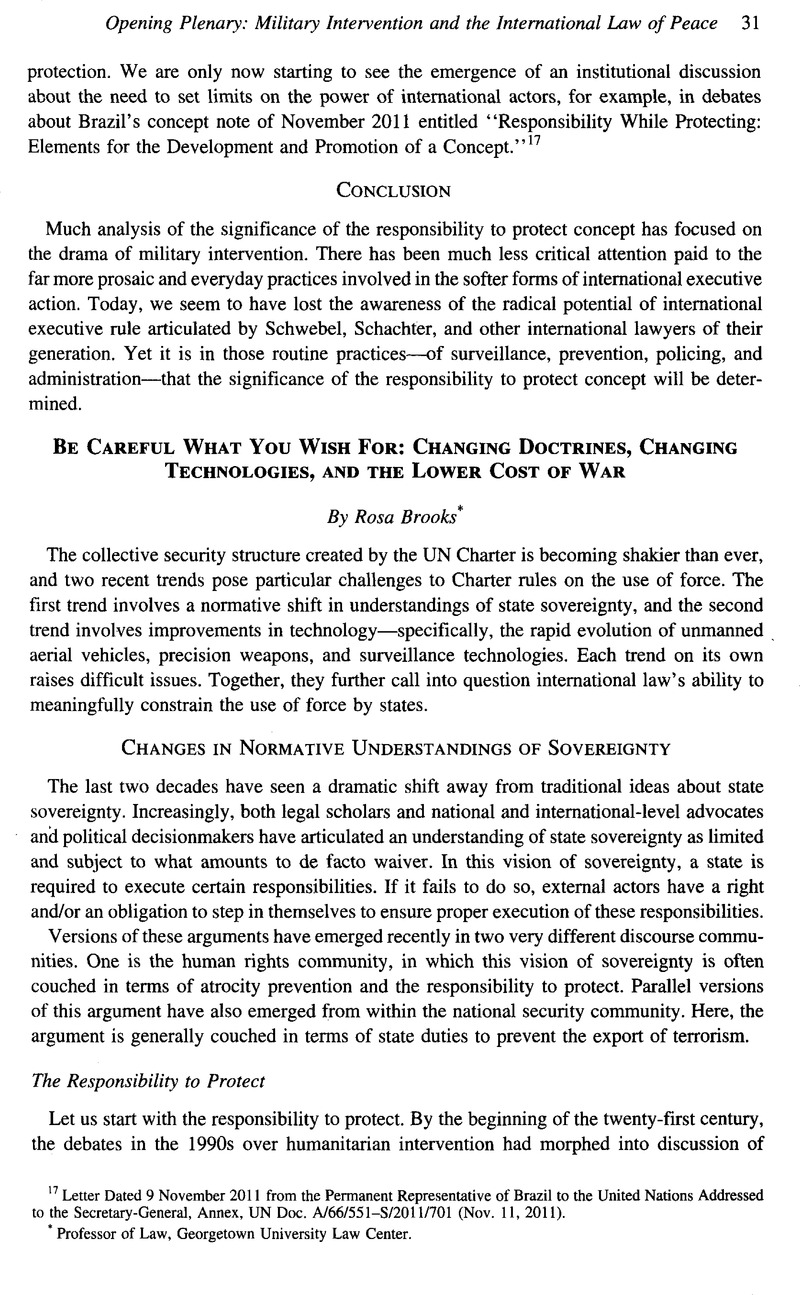No CrossRef data available.
Article contents
Be Careful What You Wish For: Changing Doctrines, Changing Technologies, and the Lower Cost of war
Published online by Cambridge University Press: 28 February 2017
Abstract

- Type
- Opening Plenary: Military Intervention and the International Law of Peace
- Information
- Copyright
- Copyright © American Society of International Law 2012
References
1 International Commission on Intervention and State Sovereignty, The Responsibility to Protect, at xi (2001), at http://responsibilitytoprotect.orgÆCISS%20Report.pdf (emphasis added).
2 Id. at xiii.
3 Id.
4 SC Res. 1973 (2011).
5 See, e.g., Moore, John Bassett, The Caroline, 2 Digest Int’l L. 409, 412 (1906)Google Scholar (exchange of diplomatic notes between Great Britain and the United States, 1842).
6 See, e.g., Council on Foreign Relations, Cross-Border Attack on Syria Raises Iranian Eyebrows (Oct. 30, 2008), at http://www.cfr.org/iran/cross-border-attack-syria-raises-iranian-eyebrows/pl7648.
7 One difficulty is raised by the fact that the affected state may agree in private to allow U.S. strikes but object in public. This, and the secrecy surrounding most of these strikes, make it difficult fully to evaluate the degree to which consent has been obtained.
8 See, e.g., SC Res. 1373 (2001) (noting that states must prevent and suppress, in their territories through all lawful means, financing and preparation of any acts of terrorism).
9 John O. Brennan, “Strengthening Our Security by Adhering to Our Values and Laws,” Address at Harvard Law School (Sept. 16, 2011), at http://www.whitehouse.gov/the-press-office/2011/09/16/remarks-john-o-brennan-strengthening-our-security-adhering-our-values-an.


